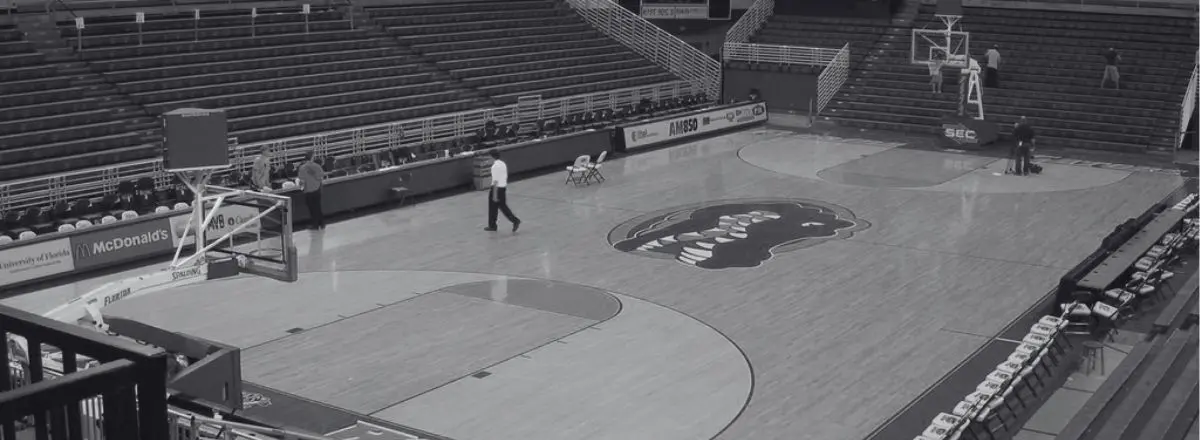Every year, the stretch run leading into the NFL’s Super Bowl serves as a time of reflection and analysis of sports betting in the United States. The Florida sports betting market is no different.
This reflection can take many forms. Some will focus on how much money gets spent betting on the Super Bowl in Florida. After all, this is just the second Super Bowl for which sports betting in The Sunshine State is live.
Others will gravitate toward the future of the Florida sports betting market. Right now, the Seminole Tribe has exclusivity over operations. This includes Florida online sports betting as well as retail services. In partnership with Hard Rock Bet, they are, quite literally, the only game in town.
However, this period of exploration and debate is not only meant for revenue projections and market speculation. It is also a time when experts in the field seek to better understand the downsides of legal sports betting.
This is especially true in markets such as Florida. Sports betting in The Sunshine State isn’t yet two years old. It takes long stretches of time to understand the fallout from gambling legalization, both good and bad.
Of course, this can be said for sports betting in the U.S. at large. The entire regulated industry isn’t that old, out of sports betting in Las Vegas and Atlantic City. The United States Supreme Court only overturned the Professional and Amateur Sports Protection Act in 2018. That is still less than a decade ago—a drop in the societal bucket. New information, lessons and, yes, unintended consequences remain part of the industry.
In Florida specifically, though, experts are beginning to laser in on the impact sports betting access has on at-risk populations. Especially young adults.
Florida Sports Betting Experts Dig Into Impact of Gambling Access
This past week, CBS Miami ran an op ed on the upsides and downsides of Florida sports betting. Here is what they say during the segment:
“With the Super Bowl now set, a lot of attention will turn toward gambling connected to the big game. Last year, FanDuel Alone reported 14 million bets tied to the game worth $307 million. But the access to gambling on your phones can be risky, especially, experts say, for younger people. [An underage bettor interviewed by CBS Miami] lost between $100,000 and $200,000. He is not alone in his struggle. There was a report published in November of 2024. The Authors’ research review estimates that 9 percent of adults and 16 percent of adolescents who use sports betting products have a gambling disorder. “What inevitably happens is we have to resort to lying, cheating and stealing,” [an unnamed expert says]. “And most of those illegal acts start close to home. The promotion of legalized gambling is really, really drawing people in.” In the United States, sports betting is legal in some sort of fashion [across most of the country]. The only legal sports betting app in Florida is Hard Rock Bet. Toward the bottom of the page it lists resources for people who believe they need help with gambling.”
These gambling-hotline inclusions in the fineprint are becoming a larger focus. Those against sports betting tend to wonder why something that requires a warning should be legal at all.
Supporters, though, push-back by citing similar cautionary messages on alcohol and tobacco, among other things. They also argue that regulated Florida sports betting is much safer than the alternative. By this, they mean scenarios in which residents turn to illegal bookies or offshore betting sites over which the U.S. has no control.
Concerns Over Sports Betting Continue to Shine Spotlight on Advertising Practices
As the CBS Miami report also notes, the proliferation of sports betting advertisements is drawing attention—and, in some cases, ire.
Promotional messages, in particular, reach a fever pitch around tentpole events like Super Bowl betting online. Granted, it is somewhat different for sports betting in Florida. They have only one operator. The absence of competition diminishes the need for constant messaging during live television.
Still, targeted sports betting ads online and even in podcasts are ubiquitous. This is true even in markets without legal sports betting. That exposure inherently drives business. And not all of that business is technically legal.
The verifications of identities—and more specifically, ages—for online sports betting remains rife with issues. Underage customers have relatively easy workarounds. That makes it easier for them to develop bad habits at a young age.
To what extent Florida, and other states, can address this issue short of shuddering sports betting is the source of much debate. Many believe larger shares of sports betting revenue should be allocated towards problem gambling prevention. Right now, so much of the funding is geared toward treatment. Preventative measures are considered more effective, at least in theory.
Implementing them, however, may be difficult. Should states make responsible sports betting part of the educational curriculum? And at what time does it begin?
In the meantime, expect legislators in Florida and throughout the country to consider crackdowns on advertising practices. And in The Sunshine State’s case, we should also be prepared for these concerns to delay prospective chances of sports betting expansion.
Take a look at this list of the top online sportsbooks so you can find one that works for all of your sports betting needs:
-
 50% bonus up to $250Play Now
50% bonus up to $250Play NowT&C apply, 18+, Play responsibly
-
EXCLUSIVE BONUS
 125% up to $2,000Play Now
125% up to $2,000Play NowT&C apply, 18+, Play responsibly
-
 50% up to $200Play Now
50% up to $200Play NowT&C apply, 18+, Play responsibly
-
 150% up to $225Play Now
150% up to $225Play NowT&C apply, 18+, Play responsibly
-
 50% bonus up to $1000Play Now
50% bonus up to $1000Play NowT&C apply, 18+, Play responsibly











